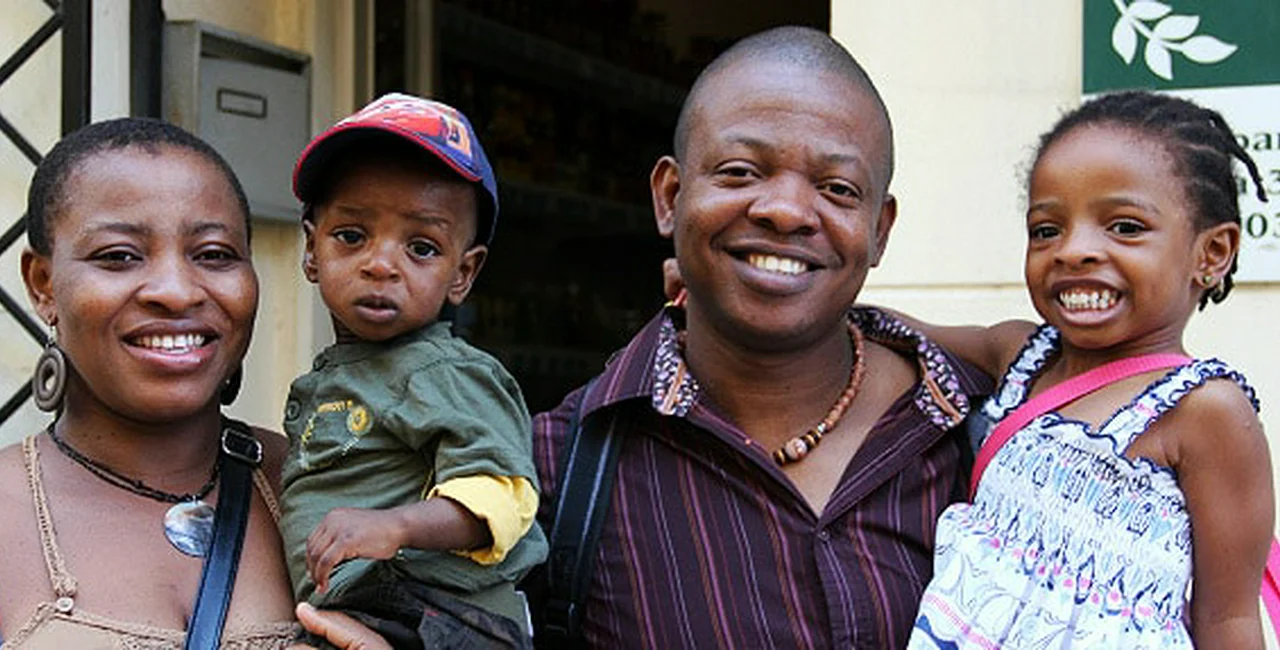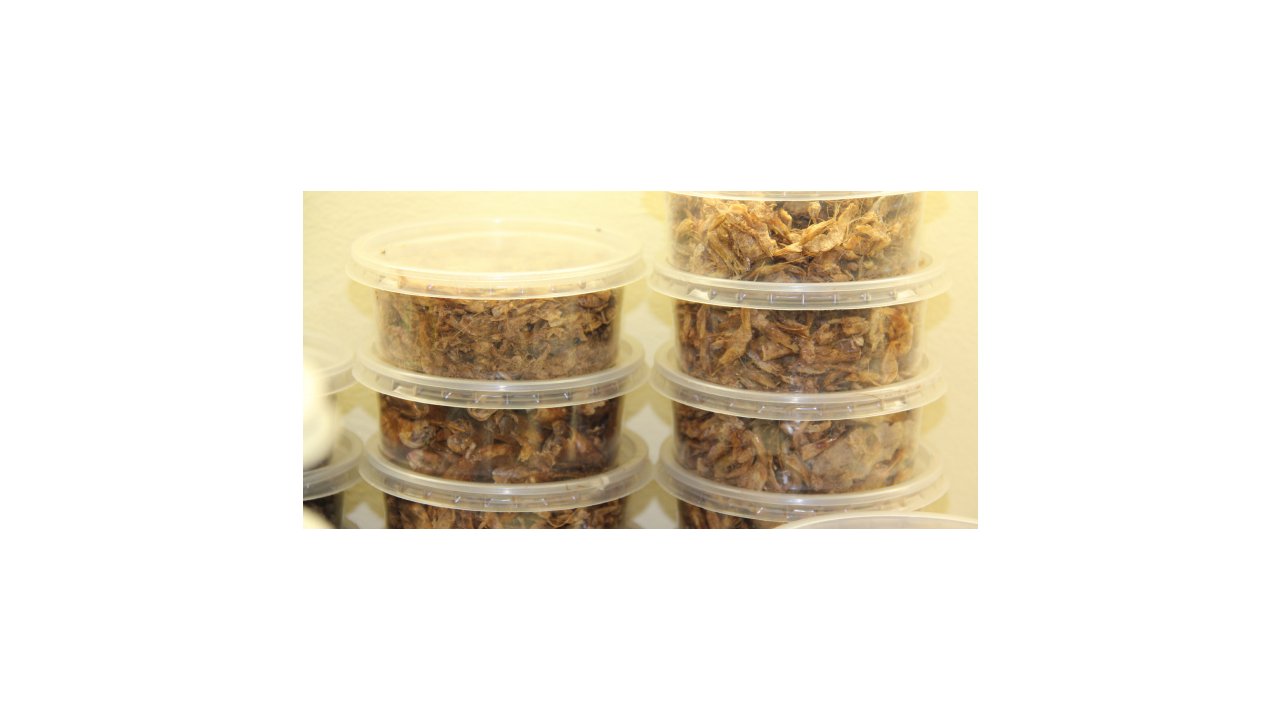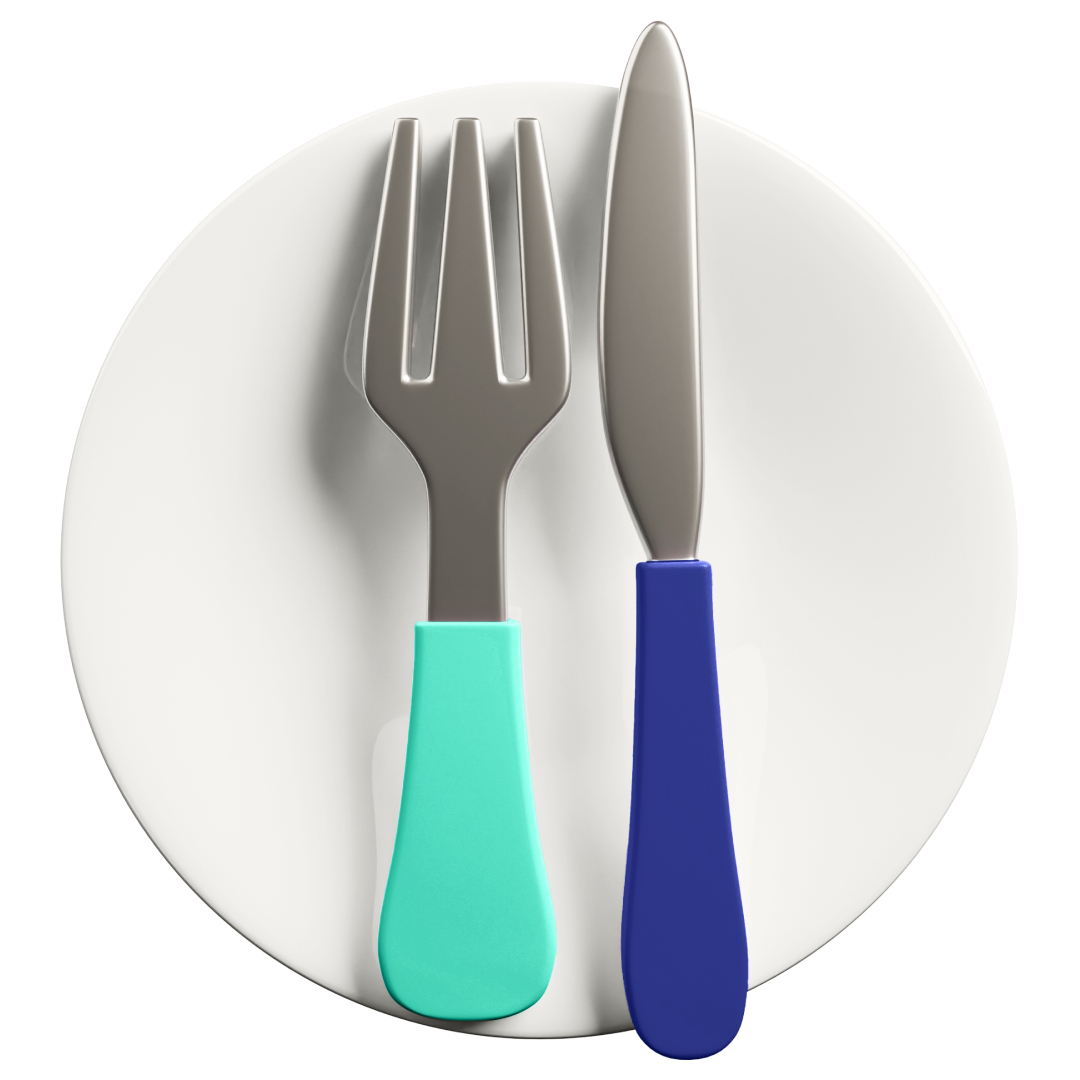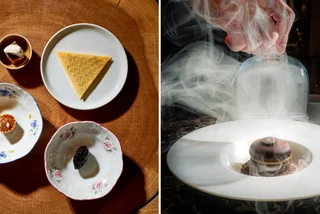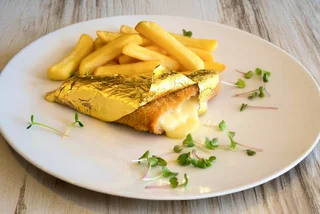Expats.cz is pleased to present a new column that takes a peek into the shopping carts and cupboards of Prague’s expat families. We hope that these profiles capture the global flavor of our expat community, always pursuing familiar tastes…while incorporating local ingredients for innovative home-away-from-home meals.
Name: Chinazu Munonye, pictured here with husband Kenneth and kids Chidinma Kayla and Ugochukwunyerem
Nationality: Nigerian, from Umuahia-Abia State
Occupation: Accountant turned stay-at-home-mom; Kenneth works for DHL
Moved to Prague: 2009
We met Chinazu and her family outside of the speciality food shop Shalamar in Žižkov where she wanted to shop for ingredients for their favorite dish Egusi, or Melon Seed Soup (see recipe below).
“This country vegetable soup is my favorite dish from my home country but, sadly, the ingredients for the original recipe cannot be found here. I have to use creative substitutions or get them from Nigeria by post!” She says she also particularly misses cassava (manioc) salad.
At Shalamar, Chinazu picks up gari (70 CZK), palm cream (80 CZK) dried catfish (95 CZK), and melon seed (130 CZK). Today she’s a little disappointed with the selection. “Normally for specialty shops I go to Shalamar. We love ginger, nutmeg, turmeric, and other seasonings from this shop.”
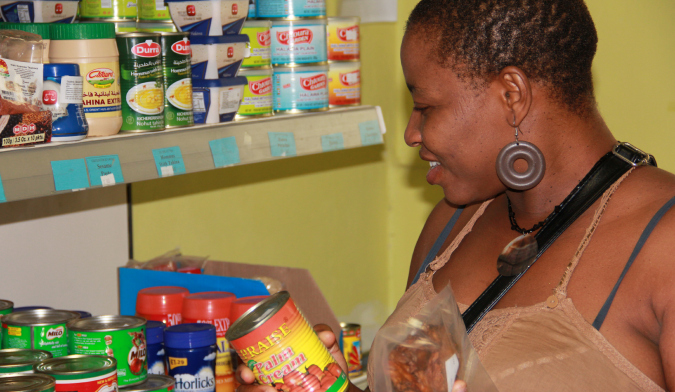
Next we hop on a tram heading to the center. Our destination is the “Manni-Mini” market at Opletalova 5. It’s an odd choice but Chinazu is determined. Once inside, she heads to the back of the store to a freezer case filled with frozen samosas. Digging in, she unearths an enormous bag of frozen okra (70 CZK).
We now have most of the ingredients for our soup, plus a few of the family’s staple grocery items. Chinazu says: “We do monthly shopping in Kaufland, then when we run out of fruit and other things for breakfast, l go to Billa, Albert, or Tesco.”
Chinazu and Kenneth know of a nearby Nigerian speciality foods shop. Our entourage continues along.
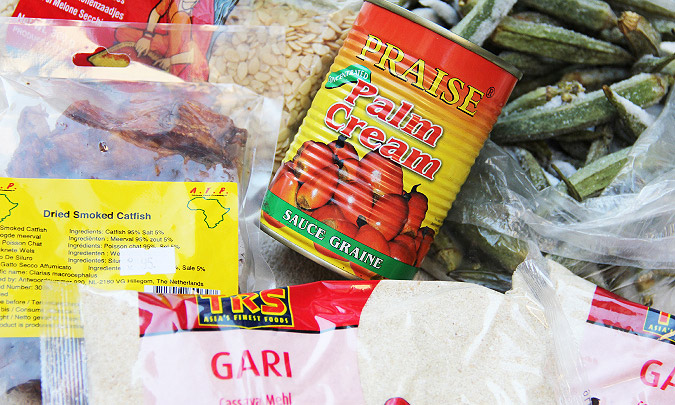
Melon seeds, smoked catfish, gari, palm cream, and okra
From the street, the unmarked African Mini Market and Internet Cafe at Ve Smečkách 3 looks like it could lead to an ordinary business or flat. But once inside we discover a wealth of gourmet ingredients including an entire freezer case of whole dried mackerel and stacks and stacks of plastic containers containing the dried, crushed crayfish used to season Nigerian dishes, plus a wonderful assortment of blacked-eyed peas and dried beans.
To our stock we add a smoked mackerel (80 CZK), dried, ground crayfish (70 CZK), and some small Nigerian peppers (50 CZK) that are similar to the Czech kapie. When asked which Czech products she buys most, Chinazu names bread, sausage, and potatoes. “We also love the classic Czech goulash and potato salad,” she adds.
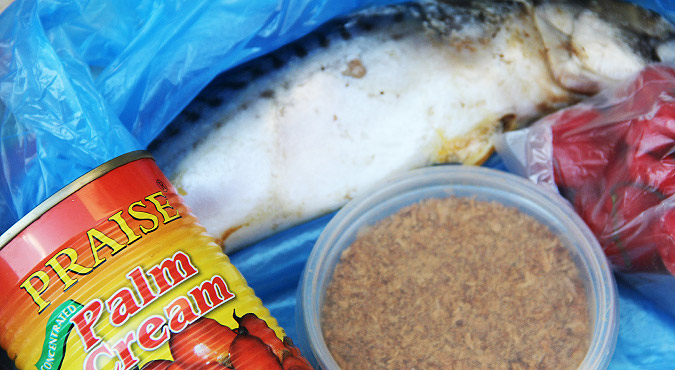
Smoked mackerel, dried crayfish, Nigerian peppers
Now it’s time for Chinazu to go home and start the melon seed soup. “This soup is eaten often in all parts of Nigeria and on all occasions,” she tells me. “We prefer having it at lunchtime.” She shares her recipe:
Melon Seed Soup
1kg beef, thinly sliced
100g of smoked fish
1 onion, diced
4 tbsp palm oil
1 tbsp of tomato puree
20g fresh pepper, diced
500g of melon seeds, finely ground
20g of crayfish, finely crushed
Fresh/dried bitter leaf (Chinazu can’t find it here and uses frozen spinach instead.)
Salt and pepper, to taste
500g gari (a thick, paste-like starch), to serve
To a large pot add the sliced beef, smoked fish, half the diced onion, and 1 cup of water. Simmer for 25 minutes. Add another 2 cups of water and let it cook. In a frying pan, heat the palm oil and add the remaining onion. Fry for 3-4 minutes, then add the tomato puree and pepper. Stir until thickened, then add to the beef stock, add grounded melon seeds and allow to cook for another 20 minutes. Add the crayfish, spinach, and seasonings to taste, cook for another 5 minutes, then remove from heat.
For the gari: Follow directions on the package. Make sure to cover the gari while steeping and allow to cool for 15 minutes before serving. Shape the gari into balls and eat with the soup.
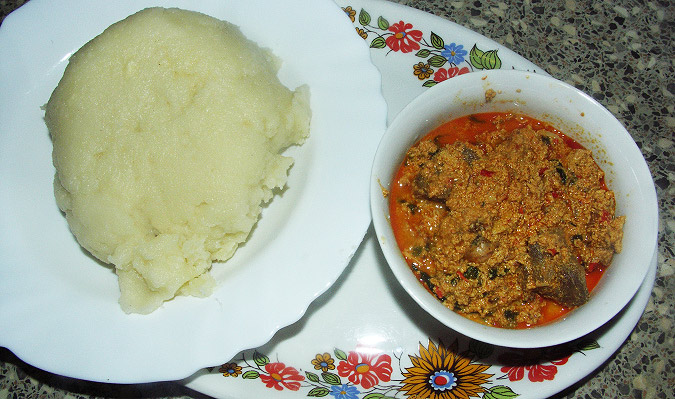
Melon seed soup with gari
Later, Chinazu shares with me photos of the family’s afternoon meal plus tells me her most important kitchen tool: the food processor. “I make all of my condiments fresh,” she says. I also want to know what sorts of challenges she faces trying to feed her family their traditional favorites in such a radically different culture. “I have no difficulty cooking here, I adapt to situations easily.” And what about when she’s too tired to cook? Like many expat families, including my own, the Munonye family goes for Chinese.
Would you like to have your family’s unique culinary traditions featured on Expats.cz? Tell us why in an e-mail to cs@expats.cz.
View For Foodies in a larger map
Related articles
- 20 Photos that Prove Czech Forests Are Paradise for Mushroom Hunters
- Discovering Prague’s Most Deliciously Diverse Sandwich
- Letná Harvest Festival to Include Prague’s Largest Farmers Market Yet
- American Professional Eater Wins Czech Plum-Dumpling Contest
- Czech Farmer Invents Summer’s Trendiest Ice Cream Craze












 Reading time: 4 minutes
Reading time: 4 minutes 